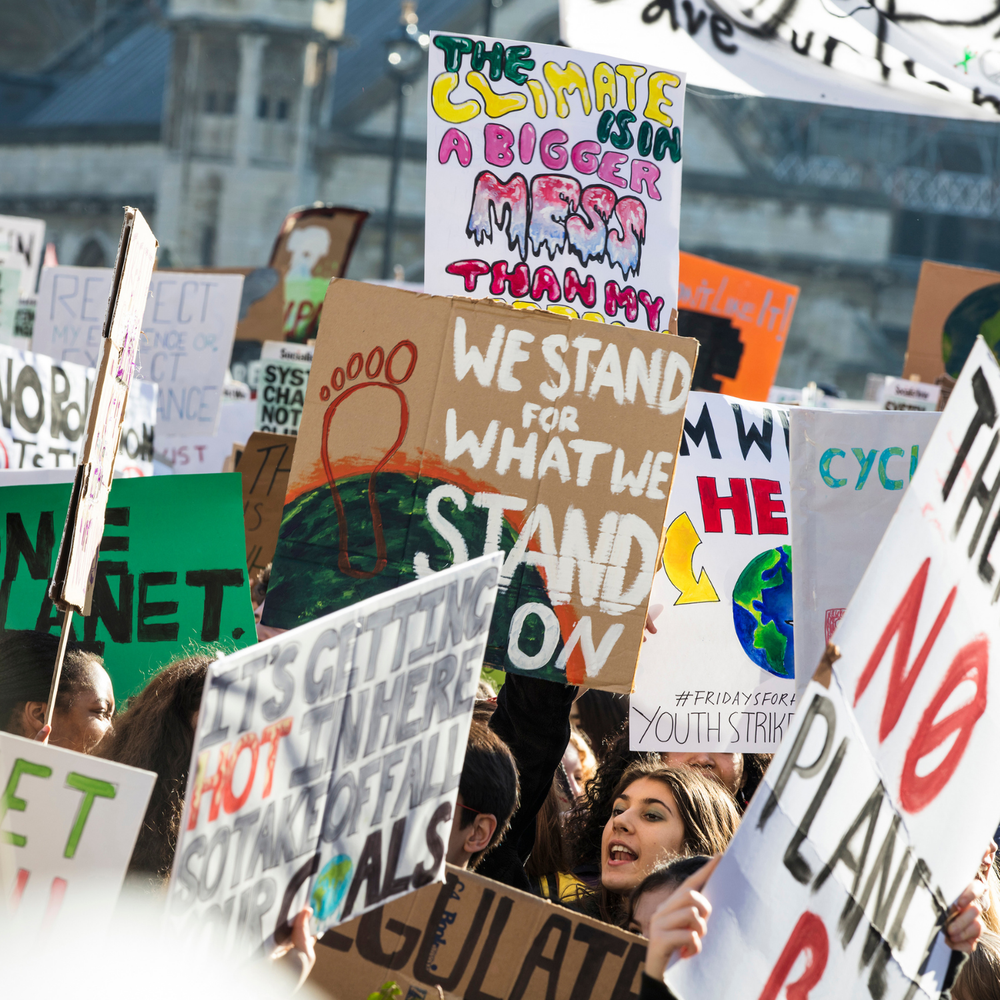Fighting back against the use of litigation to quash dissent

Shutterstock (purchased)
“When human rights defenders are afraid to question reports about wrongdoing and deficits they observe, it affects the entire society. Strategic lawsuits against public participation (SLAPPs) have exactly that effect: they can impose sometimes significant fines and criminal sanctions, and thus intimidate human rights defenders and stop them from shedding light on critical issues. It is our shared responsibility to prevent SLAPPs from undermining everyone’s right to know.”
- UN High Commissioner for Human Rights, Michelle Bachelet
What do fishermen demonstrating against contamination of a lake in Guatemala, community members raising concerns about health and environmental risks of coal ash disposal in the United States, and journalists investigating corruption in Malaysia have in common? In addition to their courage to speak out about injustice, each of these individuals were sued or faced criminal charges for voicing concerns about business practices.
Strategic lawsuits against public participation (or “SLAPPs”) are one tactic used by business actors to stop or slow the work of human rights defenders - people who are at the forefront of protecting our rights and shared planet. SLAPPs masquerade as ordinary civil or criminal lawsuits but are an abuse of the legal system. They can have a chilling effect on others who want to speak out about environmental or human rights harms in their communities related to company actions on the exercise of freedom of expression.
In this first-ever global analysis of SLAPPs, we have identified 355 cases brought or initiated by a private party since 2015 against individuals and groups raising concerns about the risks or harms of business-related activities. Each of the cases bear the hallmarks of SLAPPs, which include targeting acts of public participation and being filed after the individuals or groups expressed a critique of the claimant’s activities, as well as in some cases seeking a large amount of monetary damages. In fact, among the 82 cases for which we were able to identify the damages sought through public information, they total more than US$1.5 billion. And it’s a worldwide problem.
While these cases were initiated or brought by 106 companies and businesspeople across several sectors, the majority of cases were associated with mining, agribusiness, logging, and palm oil industries. In addition, while the highest numbers occurred in Latin America (39%) and Asia (25%), followed by Europe and Central Asia (17%), no region is exempt.
It is also concerning that nearly two-thirds (63%) of the cases we identified involved criminal charges; and some of these charges involve prison sentences for defenders. In addition, cases can drag on for years, further draining time and financial resources. For example, in 2015 19 social leaders in the Apurímac region of Peru were accused of several crimes by the copper mining company MMG Limited Las Bambas - including some that could have involved 11-17 years of imprisonment. It took more than five years for the defenders to be acquitted. Among the cases for which we could find outcomes, more than four in five alleged SLAPPs were dismissed, dropped or ruled in favour of defendant.
“The key lesson I have learned in our fight against SLAPPs in Thailand is to continue to speak truth to power, whether to government officers or to the business sector. It is important to continue our legitimate work and use our voice to support marginalized communities to achieve human rights and economic and environmental justice.” Sutharee Wannasiri, human rights advocate
While a few governments have taken measures to stop the use of SLAPPs by enacting anti-SLAPP legislation, most governments are failing in their duty to protect human rights when it comes to SLAPPs and the criminalization of defenders.
Given the lack of government action and this ongoing abuse of the legal system by some irresponsible companies, civil society is banding together to fight back. ‘Asina Loyiko: United Against Corporate Bullying’ in South Africa, Protect the Protest in the United States, “On ne se taira pas’/‘We will not be silent” in France; and the Coalition Against SLAPPs in Europe (CASE) are all coalitions of civil society organizations united against the use of this tactic to silence and intimidate critique of business actions.
There is an urgent need for governments and law firms to recognize the serious harm SLAPPs cause, not just for those targeted, but for civil society at large. If private actors with deep pockets continue to harass human rights defenders with vexatious lawsuits, ultimately everyone suffers. Therefore we are calling for the following:
- Investors and companies should commit to a clear public policy of non-retaliation against defenders and organizations that raise concerns about their practices and adopt a zero-tolerance approach on reprisals and attacks on defenders in their operations, value chains, and business relationships.
- Governments should reform any laws that criminalize freedom of expression, assembly, and association, and facilitate an environment where criticism is part of the healthy debate on any issue of public concern. They should also hold businesses accountable for any acts of retaliation against defenders.
- Law firms and lawyers should refrain from representing companies in SLAPP suits.
- Bar Associations should develop and update ethics codes to ensure that SLAPPs are a sanctionable offense for members.
Every day across the globe, people bravely speak out against injustice and to protect the health and rights of their communities. Their efforts to draw attention to risks or irresponsible practices by business actors should be celebrated, not silenced. Protecting these defenders’ freedom of expression and association and these rights for all of us is vital to our democracies and to the protection of our planet.